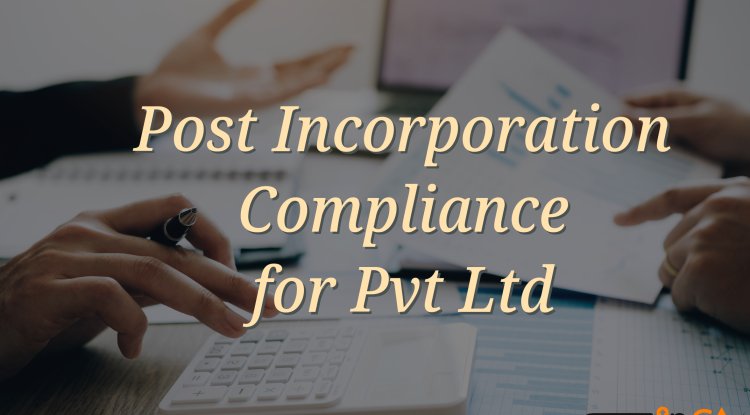FAQ on Retail & E-commerce
The marketplace-based e-commerce model means providing an e-commerce company with an information technology platform on a digital & electronic network to serve as a facilitator between the buyer and the seller.

- Are we allowed to sell products of a sub-brand if we have a Single Brand Retail Trade (SBRT) license?
No, any addition to the categories of product/products to be marketed under 'Single Brand' will require fresh government approval.
- What are the rules for the sale of goods in online e-commerce?
More than 25 percent of the sales impacted by one vendor or its community companies via its marketplace would not be a license to an e-commerce company.
- If I want to set up online and I already operate as an SBRT, do I need special permission?
A single brand retail trading entity operating through brick and mortar stores is allowed to conduct retail trading through e-commerce, subject to the conditions of SBRT under the FDI policy (link).
- Describe the term wholesale cash and carry as per the Foreign Direct Investment policy?
Cash & Carry Wholesale / Wholesale trade will mean the sale to supermarkets, manufacturing, commercial, institutional, or other specialized market users or other wholesalers and associated subordinate service providers of goods/merchandise.
- What is a marketplace and inventory-based model of e-commerce?
1) The marketplace-based e-commerce model means providing an e-commerce company with an information technology platform on a digital & electronic network to serve as a facilitator between the buyer and the seller.
2) The inventory-based e-commerce model means an e-commerce operation in which the inventory of products and services belongs to an e-commerce company and is sold directly to customers.
- Is there any condition for FDI under Single Brand Retail Trade?
1)Products to be sold should be 'Single Brand' only, i.e. products sold under the same brand globally should be sold under the same brand in one or more countries other than India, with the exception of Indian brands undertaking SBRT.
2)'Single Brand 'product-retail trading will only include goods that are advertised during development.
(3)A non-resident person or entity, whether or not the owner of a brand or otherwise, is allowed to conduct retail trade in a single brand product, directly or by a legally tenable arrangement with the brand owner.
(4) At the time of requesting permission, the investing agency shall supply documentation to that effect, including a copy of the licensing / franchise / sub-license agreement, etc.
- What are the different states that allow Multi-Brand Retail Trading (MBRT) and are there any clauses under the rule?
As per paragraph 5.2.15.4 of the FDI Regulation, 2017, MBRT is allowed by the following states, subject to the conditions stated in the regulation:
- Andhra Pradesh
- Assam
iii. Delhi
- Haryana
- Himachal Pradesh
- Jammu & Kashmir
vii. Karnataka
viii. Maharashtra
- Manipur
- Rajasthan
- Uttarakhand
xii. Daman & Diu and Dadra and Nagar Haveli (Union Territories)
- How much FDI is allowed under single brand product retail?
100 percent FDI is permitted via an automatic route under single brand product retailing.
- What is the FDI policy for Duty-free shops?
100 % FDI via automatic route is permitted under Duty-Free Shops.
- What percentage of profit can I make on one sale online?
When it comes to selling online, there are many factors to consider, and because of these factors, most of which are unique to various firms, the amount of profit on one online sale is not set and varies. The amount of profit you would earn online from one sale can be considerably greater than what you can earn offline from the same sale. That is because the cost of delivering the product/service online is considerably lower than the cost of selling it offline. Therefore, the percentage of profit one may make online from one sale depends on the nature of the business.
- List the major benefits of E-commerce?
The key advantages of e-commerce are:
1) Overcomes geographical restrictions
2) Reduce time and cost of travel
3) Remain open all the time
4) Encourage sales, bargains, discounts, and group purchases.
- What is Web Hosting?
Web hosting is a service that enables a website or web page to be placed on the Internet by organizations and individuals.
- Where can I find labeling requirements for food retail in India?
There are additional disclosures expected to be made according to FSSAI regulations, depending on the food category. The packaging material will also have to comply with the applicable regulations for packaged goods (Legal Metrology Act and rules issued thereunder). The Food Safety and Standards Authority of India (FSSAI) has issued regulations laying down specifications for packaging and labeling.
- Are there specific laws regarding the termination of employee contracts?
No employer shall, under the Shops and Establishments Act, dispense with the services of an employee who has been in continuous employment for no less than three months without giving notice for at least one month. However, if the duration of notice prescribed by an employee's employment contract is longer than one month, the employer would have to include the period of notice as prescribed by the contract. For further information, please refer to the respective state's Shops and Establishments Act.
- Are there any legal requirements regarding apparel labeling?
There are legal labeling provisions in retail stores for apparel in loose form, which can be found below in the 2011 Legal Metrology Regulations. Product Size Name or Description: Globally recognizable size indicators-S, M, L, XL, etc., along with metric notation specifics in terms of cm or m as appropriate. Alternatively, you can use the words 'TO Match SIZE' on the label instead of just 'Size'. Maximum retail price The manufacturer's name, full address, and customer service number.
- Are there any required approvals and licenses or registrations that need to be procured in order to import apparel or other retail goods?
The conditions for approval or licensing depend on the product proposed to be imported to India. Furthermore, compliance with the applicable provisions of the FDI Policy 2017 would have to be ensured in the case of planned foreign investment. Furthermore, any individual interested in importing products into India must obey certain rules and guidelines as set out in the 2013 Companies Act, RBI guidelines, etc. As per state decision, they must pay GST, Income Tax, and other taxes. Import Export (IE) codes that are necessary to import or export products are provided by the Directorate General of Foreign Trade (DGFT). The IE Codes issued can be used by the company throughout its lifetime and no renewal or filing is required.
- Can my company use plastic bags and plastic packaging?
There is a full ban on the manufacturing, supply, and storage of polythene bags and other plastic products such as cups, plates, spoons, and glasses in many states with a partial ban in some states such as Maharashtra, West Bengal, Goa, Kerala, etc., according to the Plastic Waste Management Rules 2016. Some states permit polythene bags with a thickness of above 50 microns.
- Where can I find regulations in food safety?
India's Food Safety and Standards Authority is the regulatory authority and has developed a robust food safety and standards policy system in India.
- Is physical presence mandatory for a single brand retail entity into B2C eCommerce? Is there any required number of stores for this?
Before joining the e-commerce market, a single brand retail organization willing to enter into B2C e-commerce in India must have a physical presence in India. There is no clear criterion, per se, for the number of physical stores to be held in India.
- What is the government FDI policy to sell products online?
1) 100% Equity / FDI Limit is allowed under the automatic entry path, it is only applicable to the e-commerce marketplace model and not to the inventory-based model.
2) Only in Business to Business ( B2B) e-commerce and not in Business to Consumer ( B2C) e-commerce can e-commerce companies participate, subject to FDI Policy provisions.
3) An e-commerce company shall not permit from one supplier or its group companies more than 25 percent of the sales affected by its marketplace.
- Is it possible to set up an online shop for an already existing SBRT?
A single brand retail trading entity operating through brick and mortar stores is allowed to conduct retail trading through e-commerce, subject to the conditions referred to in this paragraph.
- What is refined buying?
In India, a significant rise in the consumption of more diverse goods and services is inevitable. However, before any purchase, customers would tend to check feedback and explore alternatives, which is called refined purchasing.
- What are the Aid drivers for the growth of e-commerce?
There will be more aspirations (and revenues) for the current wave of tech-savvy customers to buy various goods and use a range of services. Asset-light e-commerce models will provide brands & companies with an expanded reach and wider market, backed by offline collaborations (e.g. restaurant collaboration with Zomato) and demand aggregators. The model on which the app-based distribution of food operates.
- What is the trend of consumerism in India?
Consumerism is a social and economic mechanism that facilitates the buying of goods and services that are increasingly growing. In India, there is a huge increase in consumerism. In 2030, the middle class is expected to drive 75 percent of consumer spending, based on increased and strong buying power.
- What is the digital influence on consumerism?
The level of access of consumers to new media and online channels will assess the drivers of preferences. A customer who is well-connected (to the digital world) would have a wider range of goods and will be aware of the brands that may suit his needs.
- What is the PM Street Vendor’s AtmaNirbhar Nidhi (PM SANNidhi) Scheme?
This is a Central Sector System to make it easier for street suppliers to access.
What's Your Reaction?




















